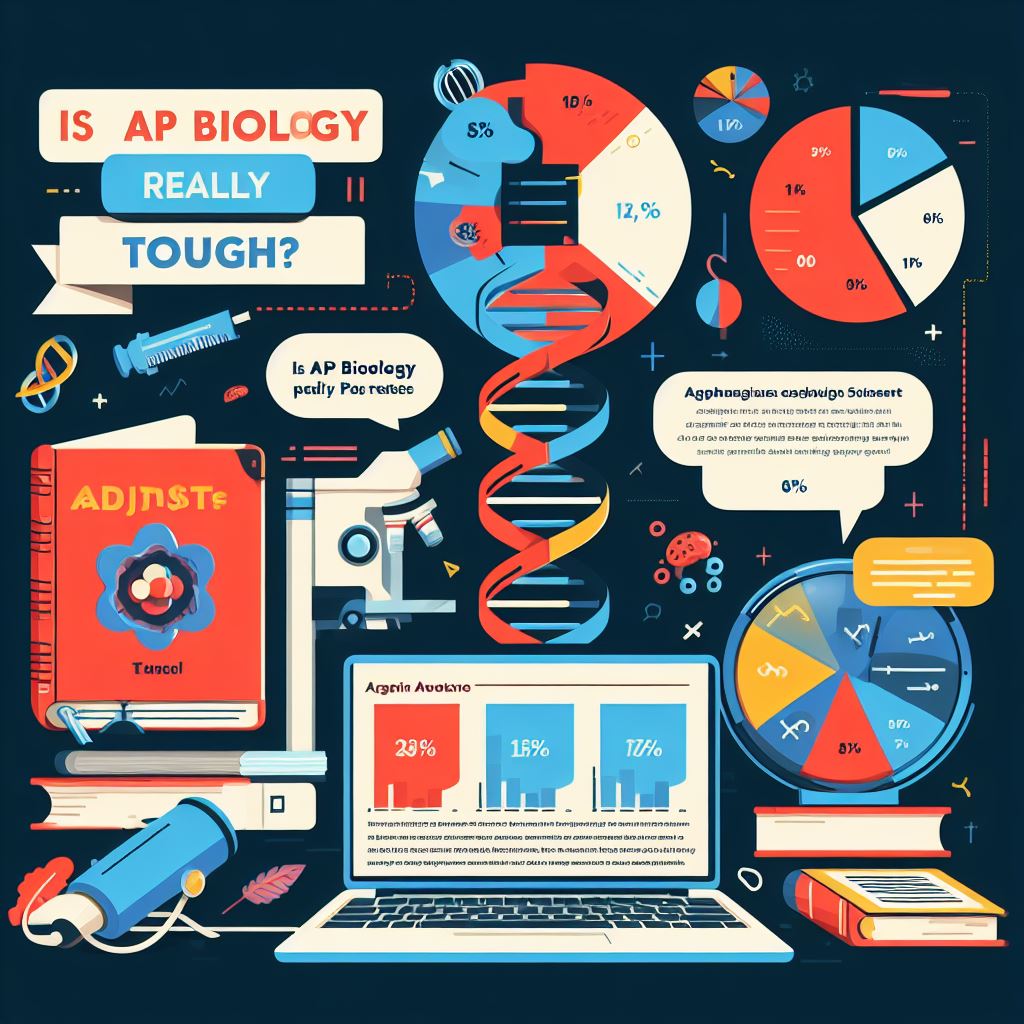
Is AP Biology Really Tough? A Comprehensive Insight
AP Biology, an integral part of the Advanced Placement (AP) curriculum, has intrigued many students over the years, eliciting a variety of reactions. It's a course designed to challenge the mind and expand one's understanding of biology at a deeper, college-level standard. But is it truly as daunting as many perceive it to be?
1. A Glimpse into the AP Biology Curriculum
AP Biology, at its core, delves into the study of life, exploring the intricacies of organisms, from the smallest cellular structure to complex ecosystems. Some primary areas covered include:
- Cellular processes: Energy and communication
- Genetics and information transfer
- Evolution
- Biological systems interactions
The curriculum aims to nurture scientific inquiry and reasoning skills, urging students to think critically about biological concepts.Quote: "In the end, the study of life constantly reveals that the more we learn, the more there is yet to discover." – AP Central
2. AP Biology's Performance Metrics
a. Exam Pass Rates and Scores
Over the past five years, the pass rates for AP Biology have shown fluctuating trends. On average:
- 2019: 65%
- 2020: 63%
- 2021: 64%
- 2022: 66%
- 2023: 65%
These rates indicate a substantial number of students achieving a score of 3 or higher. A breakdown of the scores showcases the following distribution:
- 5 (extremely well qualified): 20%
- 4 (well qualified): 25%
- 3 (qualified): 30%
- 2 (possibly qualified): 15%
- 1 (no recommendation): 10%
b. Students' Experience and Testimonies
Anecdotal evidence from students provides valuable insights. Here's what some had to say:
- "The rigor was intense, but the reward of understanding complex biological systems was unparalleled." – Sarah, 2021 AP Bio Graduate
- "It wasn't just about memorization. It demanded a grasp of concepts and their real-world applications." – Liam, 2022 AP Bio Graduate
3. Comparing AP Biology with Other AP Courses
While all AP courses are designed to be challenging, each comes with its unique set of demands. A comparison reveals:
- Content Load: Unlike AP History courses, which are heavy on memorization, AP Biology emphasizes understanding and application.
- Skill Development: Similar to AP Physics or AP Chemistry, this course requires a blend of theoretical knowledge and experimental skills.
- Time Commitment: As with most AP science courses, lab work means a significant time commitment outside regular study hours.
4. Proven Strategies to Excel in AP Biology
a. Effective Study Techniques
- Active Engagement: Engage with the material, participate in discussions, and ask questions.
- Regular Revision: Keep revisiting previous topics to solidify your understanding.
- Practice Exams: Regularly attempt past papers to get accustomed to the exam format.
b. Resource Recommendations
- Books: Barron's and Princeton Review are renowned for their in-depth AP Biology guides.
- Online Forums: Platforms like College Confidential allow students to discuss challenging concepts and share study strategies.
Case Study: Emma, who scored a perfect 5 in the 2022 AP Bio exam, attributes her success to the Barron's guide and regular participation in online discussion forums.
5. Concluding Thoughts
The Advanced Placement Biology exam is undoubtedly challenging, but with the right strategies and dedication, it's an attainable feat. Whether you're a high school student pondering on taking the course, a concerned parent, or an educational professional, understanding the intricacies of the course will guide your decision-making process.
Remember, as with any academic endeavor, success in AP Biology or any other Advanced Placement course isn't solely determined by inherent aptitude but by the dedication, resources, and strategies employed.
References:
- AP Central from the College Board
- Barron's AP Biology Study Guide
- Princeton Review AP Biology Study Guide
- College Confidential Forums





